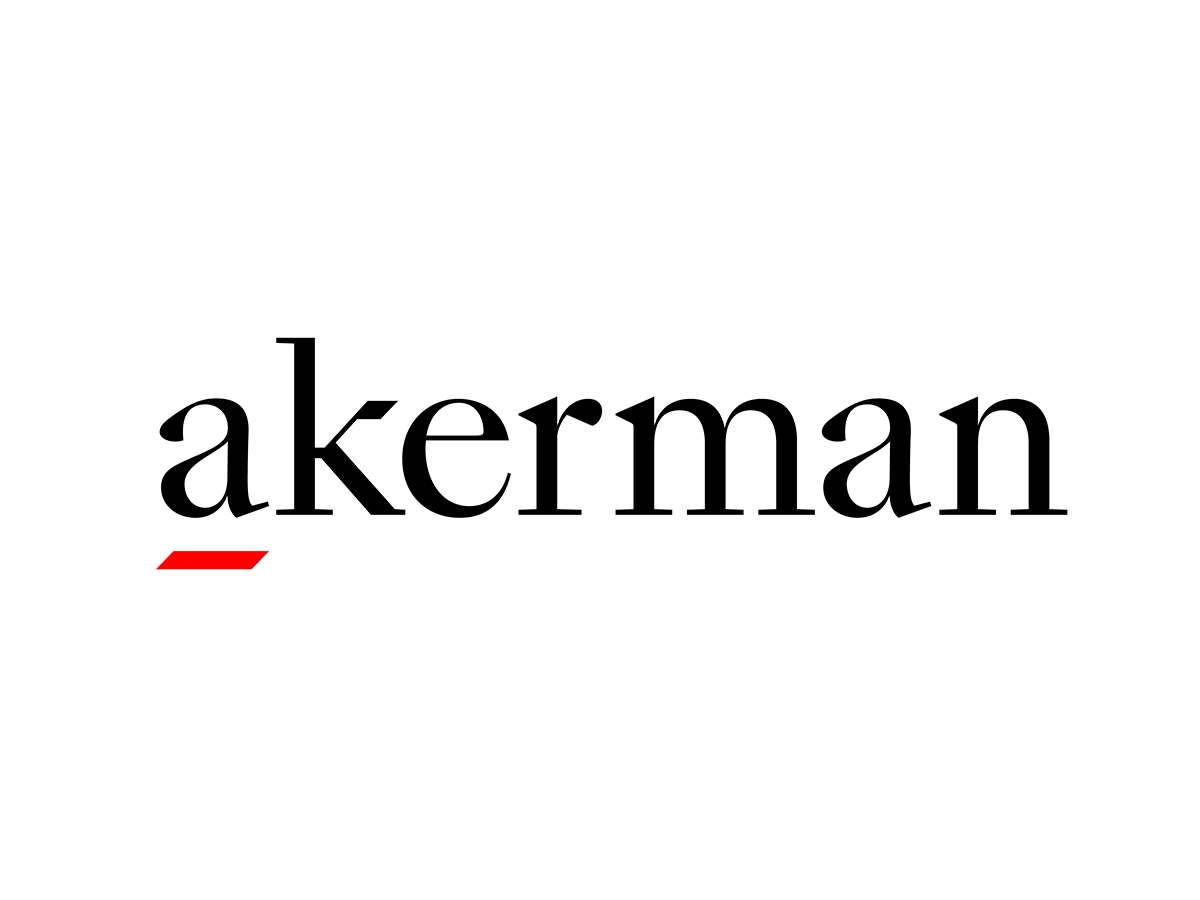Content-Based but Viewpoint-Neutral: Federal Trademark Law “Names Clause” Withstands Constitutional Challenge | Akerman LLP
There has long been a tension between the Free Speech Clause of the First Amendment of the U.S. Constitution and federal trademark law. In two relatively recent Supreme Court trademark cases, the First Amendment won, enabling federal registration of previously unregistrable trademarks,[1] but in the court’s decisions on June 13, in a case involving an insult of former President Trump, the trademark law won.
At issue in Vidal v. Elster was the provocative phrase “TRUMP TOO SMALL” for use on T-shirts and related apparel. Steve Elster, a California lawyer who coined the phrase, applied to register the mark, but the application was refused by the U.S. Patent & Trademark Office (USPTO) under Section 2(c) of the Trademark Act, 15 U.S.C. § 1052(c). Section 2(c), known as the “names clause,” prohibits registration of trademarks that include the name of a living person who did not consent in writing to the registration.
The background of the case stems from the 2016 presidential election when then-candidates Marco Rubio and Donald Trump engaged in a coarse public exchange regarding the size of Trump’s hands (and other anatomical comparisons). From this exchange, Elster coined the phrase “TRUMP TOO SMALL” and added a hand illustration, which he printed on T-shirts (shown below). He applied to register the word mark in January 2018 (U.S. Serial No. 87749230).
(
After his trademark application was refused, Elster appealed to the USPTO’s Trademark Trial and Appeal Board, which affirmed the refusal, rejecting Elster’s argument that the names clause of the Lanham Act violates his First Amendment right to free speech. In his next appeal, the U.S. Court of Appeals for the Federal Circuit, which hears intellectual property related appeals, reversed the USPTO, holding that the names clause does violate the First Amendment because, while viewpoint-neutral because it applies to both positive and negative references to names of living people, it is a content-based (peoples’ names) restriction on speech that does not advance any substantial governmental interest.
In its June 13 decision, the Supreme Court reversed the Federal Circuit and sided with the USPTO on grounds that Section 2(c)’s prohibition did not violate Elster’s free speech rights, because the law, though content -based because it turns on whether a trademark contains a person’s name, is viewpoint neutral, which prevents it from triggering heightened scrutiny under the First Amendment.
Justice Clarence Thomas, writing for the 9-0 unanimous outcome, found “[t]he names clause does not facially discriminate against any viewpoint. No matter the message a registrant wants to convey, the names clause prohibits marks that use another person’s name without consent. It does not matter “whether the use of [the] name is flattering, critical or neutral,” citing 2 McCarthy §13:37.50 (the trademark law treatise).
Elster claimed that the names clause discriminated based on viewpoint in practice, because it is easier to obtain consent for a trademark that puts its subject in a flattering light. The court’s reasoning, however, turned on an historical review of trademark rights, concluding that “courts have long recognized that trademarks containing names may be restricted.”
The court noted that its decision applies only to the constitutionality of the names clause in terms of First Amendment rights, and not to all content-based but viewpoint-neutral trademark restrictions. Indeed, the Elster decision differs from relatively recent trademark cases that struck down other provisions of the Trademark Act based on viewpoint discrimination. The plaintiffs in Matal v. Tam, 582 U. S. 218 (2017) (“THE SLANTS” as the name of an Asian-American music band) and Iancu v. Brunetti, 588 U. S. 388 (2019) (“FUCT” on clothing), both successfully challenged provisions of the Trademark Act which prohibited registration of (1) marks that “disparage” any “persons, living or dead,” 15 U.S.C. §1052(a), and (2) marks that include “immoral, deceptive, or scandalous matter,” respectively.
In her concurrence in Elster, Justice Sonia Sotomayor agreed with the outcome, but disagreed with the reasoning, and in particular Justice Thomas’ “history and tradition” basis of the holding. She would have “look[ed] to trademark law and settled First Amendment precedent.” “This Court has held in a variety of contexts that withholding benefits for content-based, viewpoint-neutral reasons does not violate the Free Speech Clause when the applied criteria are reasonable and the scheme is necessarily content based. That is the situation here.”
Despite the USPTO’s refusal to register the mark “TRUMP TOO SMALL,” Elster is free to use the mark on clothing and other goods. That is because the USPTO does not have the power to stop the use of unregistrable trademarks; only district courts can do that by issuing injunctions.
[1] See Matal v. Tam, 582 U. S. 218 (2017) and Iancu v. Brunetti, 588 U. S. 388 (2019)






